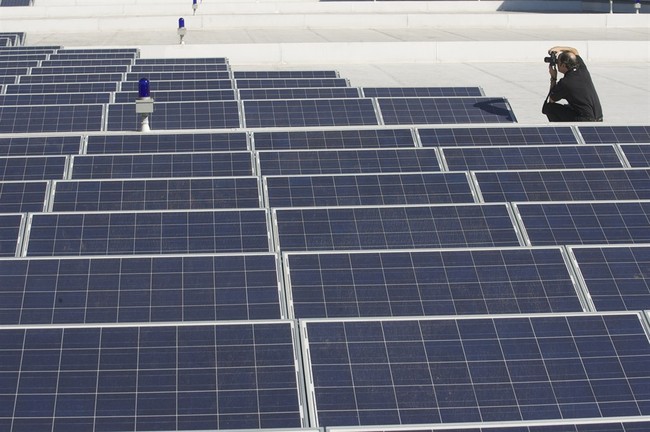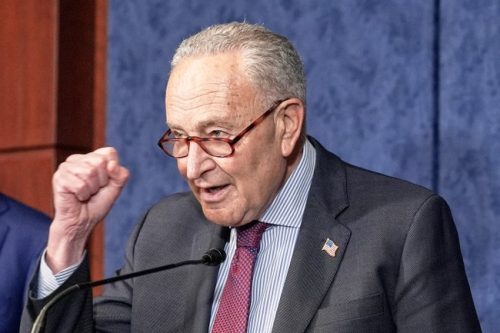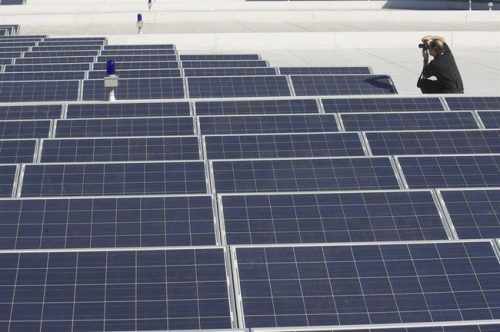21 Attorneys General Challenge EPA Over Solar Program Cuts
Oregon Attorney General Dan Rayfield and 22 other plaintiffs have filed suit against the U.S. Environmental Protection Agency and EPA Administrator Lee Zeldin over the abrupt end of a $7 billion program meant to put solar panels into low-income homes. The complaint says the agency terminated the program after states and local partners had already been awarded funds and begun detailed planning. The suit frames the move as not just a funding reversal but a legal overstep.
Congress created the Solar for All program in 2022 as part of the Inflation Reduction Act, directing the EPA to use competitive grants to deploy solar projects in low-income and disadvantaged communities. The program was designed to lower energy bills and expand clean energy access for households that otherwise could not afford solar. States and nonprofit partners moved forward expecting the federal awards to be honored.
By August 2024, EPA had selected recipients and awarded program funds to the plaintiff states and other grant recipients, and those recipients began designing projects and lining up contractors. Many states then committed their own budget resources and negotiated agreements with local utilities and landlords to get projects underway. That front-end work is now at risk because the federal funding was rescinded.
Two months ago the EPA cancelled the Solar for All program and sought to recover most of the money already distributed. That surprise move left states without access to funds they reasonably relied on and disrupted months of planning and contracting. The legal filing argues that those sudden reversals impose real costs on the ground.
Without the federal money, key initiatives stall: low- or no-cost rooftop systems for single-family homes, rebates and incentives for multifamily buildings that serve lower-income tenants, and technical and financial support for community solar projects. The complaint notes that community solar arrangements are especially important in areas served by consumer-owned utilities, where private investment can be harder to attract. Those programs were intended to reach renters and people who can’t put panels on their own roofs.
“Working families are already feeling the strain of rising energy costs – and blocking Oregon’s clean energy programs only makes that worse,” Rayfield said in a statement. “This funding wasn’t just about protecting the environment; it was about lowering bills, creating jobs, helping communities transition to cleaner, more affordable power.”
In July, Congress enacted the “One Big Beautiful Bill Act,” which rescinded funds for the Solar for All program that were unobligated as of July 3. On August 7, the EPA terminated the program.
Rayfield and a multistate coalition filed the lawsuit in U.S. District Court for the Western District of Washington, asserting that the EPA’s actions violated the Administrative Procedure Act and breached constitutional limits on executive authority under the Separation of Powers Doctrine. The complaint asks the court to block the agency’s rescission and restore the awards or otherwise provide relief to the affected states. Plaintiffs argue the agency failed to follow required procedures and ignored the reliance interests of governments and communities.
Joining Oregon in the complaint are the attorneys general of Arizona, California, Colorado, Connecticut, Hawai’i, Illinois, Massachusetts, Maine, Maryland, Michigan, Minnesota, New Jersey, New Mexico, New York, North Carolina, Rhode Island, Vermont, Washington and the District of Columbia, along with the governors of Kentucky and Pennsylvania and the Wisconsin Economic Development Corporation. Those plaintiffs say they represent a broad cross-section of jurisdictions that had begun implementing solar projects based on the EPA awards.
The One Big Beautiful Bill eliminated the Greenhouse Gas Reduction Fund, which included a $7 billion pot called “Solar for All”.
In some cases, your tax dollars were diluted through up to FOUR pass-through entities, each taking their own cut off the top!
The bottom line is… pic.twitter.com/TXS8IYhcoh
— Lee Zeldin (@epaleezeldin) August 7, 2025
Separately, Oregon also joined another lawsuit filed in the U.S. Court of Federal Claims, signaling a parallel legal effort to seek redress for the financial harms caused by the program’s cancellation. The multiple filings show states pursuing every available legal avenue to recover funds and enforce the original grant decisions. Plaintiffs say the litigation is meant to protect taxpayers and families who relied on the federal commitments.
From a Republican perspective, the case is framed as a defense of predictable government and local control, not an argument against clean energy itself. The filing stresses that sudden federal reversals undermine state planning, impose costs on working families, and set a troubling precedent for agency power.
The outcome will test whether courts will rein in an agency decision that states describe as both procedurally flawed and substantively harmful. Whatever the ruling, the dispute raises hard questions about how federal programs are administered and what happens when Washington abruptly pulls the plug on money communities have already counted on.






